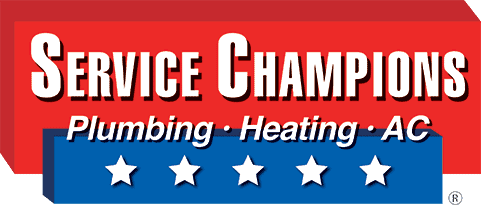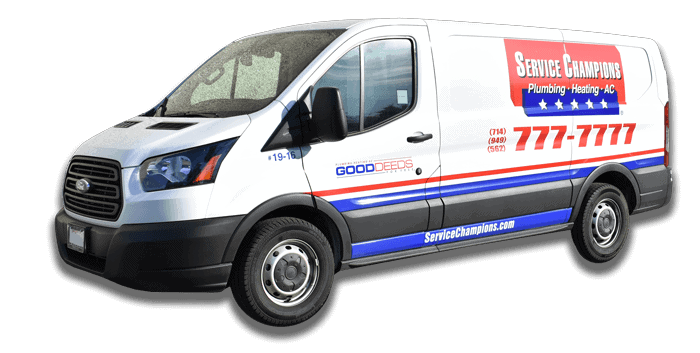Top Three Ways to Help Your Central Air
Considering all the heating and air conditioning we demand, there’s little we have to do for the central air system. However, for homeowners who really want to experience the difference that comes from superior central air systems, there is some care involved.
Help Your Central Air Save Time
Want to reduce the amount of time your central air works? Try managing the heat load.
When the home gets too hot or too cold, your central air has to work that much harder. That means greater wear on central air system parts, greater energy spending and more time homeowners have to wait for their home comfort.
Instead, manage the heat load. Always keep the central air on, but just a few degrees above or below your desired temperature. This way, even when you aren’t home, indoor air remains at a manageable temperature. Managing the heat load with this method is the best and most practical way to save your home comfort from time-consuming temperature swings.
Help Your Central Air Save Energy
Want to help your central air system save energy? Try insulating the home. Most homeowners do not realize how their home aids in energy loss. There are many cracks, crevices, leaks and holes throughout the house that cause heating and air conditioning to escape.
To help your central air save energy, opt for attic insulation and duct insulation. These two types alone help protect the efficiency of your air conditioning. In addition, take a look around the home and caulk or weather-strip leaks. Look for crevices around windows and doors in particular.
Taking the time to insulate the home will help your home comfort more than it may seem.
Help Your Central Air Make Your Home Better
Want your central air to last and work hard? Invest in HVAC maintenance. Central air maintenance is the best way to care for your home.
With central air maintenance, homeowners:
- Have cleaner indoor air
- More efficient air conditioning
- Reliable air conditioning service
- Prevent expensive repairs
- Avoid permanent damages
During HVAC maintenance, your technicians thoroughly clean both inside and outside the central air. They remove microbiological growth and other buildup that slows down the central air. This is the time they provide special care and attention to your particular central air system, making sure that service is reliable and efficient. Any problems are sorted before issues occur, so you save from damages and repair.
Schedule central air maintenance twice a year to reap all the benefits.
Expensive Mistakes Homeowners Make With Their Central Heating and Air
With the central heating and air system tucked away from view, it’s easy to forget to care for it. While most homeowners do a fair job of scheduling maintenance every year, there are some mistakes that can really cost, not just money but also time and peace of mind.
Avoid these three expensive mistakes homeowners make with their central heating and air.
Expensive Mistake #1: Use the Heating and Air Even When It’s Down
Working the central heating and air when it has issues causes further damage. These damages grow more and more expensive to repair, and in some cases, become permanent.
If you know that your central heating and air system needs a repair, turn it off. Refrain from use until it receives the attention of an HVAC specialist.
Homeowners who do not have their central heating and air serviced often use their system through repairs and damages. They work the system until it burns out and needs to be replaced altogether. This is an extremely expensive mistake.
Expensive Mistake #2: Skip Central Heating and Air Maintenance
Maintenance itself delivers the preventative care needed to have the system last so homeowners have a lower cost per use over a longer period of time. Homeowners who routinely skip central heating and air maintenance do not realize how much it damages the system.
Even without needed repairs, running the central heating and air without its regular cleaning results in:
- High energy spending
- Frozen evaporator coils (for air conditioning)
- Microbiological growth
- Dirty indoor air
- Tough buildup in furnace
When buildup collects, interior parts become coated in grease, growth and solid particles. This, for example, includes the fire exchanger, one of the most expensive parts of the furnace.
Using the heating system on sticky fire exchanger results in:
- A tripped safety switch, after which the system will not operate
- Gas buildup
- Carbon monoxide leaks
- Smelly heating and air conditioning
- Stressed central heating and air conditioning system
If the fire exchanger continued without maintenance, it would eventually need to be replaced.
Without the biannual check-ups, central heating and air systems are at risk for:
- Low indoor air quality
- Poor system operations
- Inefficient heating and air conditioning
- Significant heat loss
- Expensive repairs
- Permanent damages
- Shortened service lifespan
Central heating maintenance is recommended twice a year. With regular maintenance homeowners prevent 90 percent of expensive repairs and permanent damages. Apart from all the trouble homeowners avoid, they would enjoy cleaner air with reliable heating and air conditioning.
Expensive Mistake #3: Never Change the Air Filter
The air filter of the central heating and air system is highly underestimated. The air filter does more than keep indoor air breathable. Just as importantly, it keeps the inside of the central heating and air system clean and healthy.
What happens to the central heating and air when the air filter is old and overused? On a full air filter, airflow becomes restricted. As a result, heating and air conditioning declines. The furnace overheats without enough air to warm. Energy spending increases and home heating declines.
For a little piece of equipment, the air filter contributes a great deal to the overall heating experience. Fortunately, it does not cost much to replace, but it does need to be cleaned regularly. The specific number of times homeowners should change it varies per home.
Consider:
- Present air quality
- Home environment
- Additional allergens like pets or indoor gardens
- Lifestyle goals and requirements
Ideally, homeowners should change or clean the air filter to their central heating and air once a month. However, this gets overwhelming for many. For the average home, changing the air filter every few months is just fine. At the absolute least, change the air filter every six months.
Quick Tips for Better Central Heating
What is the best and most cost effective way to improving central heating? Turns out, there is so much we can do right from home and on our own.
Follow these quick and easy tips to better your central heating.
Maximize Airflow by Clearing the Home
Keeping the home clean is an important part of making central heating better. It keeps air cleaner and facilitates fuller airflow. When boxes, furniture or other home pieces are poorly placed, they obstruct airflow and stop homeowners from experiencing full heating and air conditioning.
Homeowners should reevaluate what fills their homes and how. Take a look where registers and vents are and make an effort to keep these areas clear. For example, it would be a terrible idea to keep the piano or couch by the supply duct. The air coming out of the central heating system will only warm the back of the couch and never reach the rest of the living space. Likewise, keeping the dog’s bed nearby would only cause pet dander and hair to fly about.
By keeping areas as open as possible, homeowners are more likely to experience better central heating with smarter energy usage.
Keep the Home Sealed and Insulated
Another important step in improving central heating is to keep heated air trapped inside the home. If windows and doors are constantly open, heated air escapes while cold outdoor air enters. Homeowners never get to enjoy their central heating despite paying for all of it. To protect energy efficiency and home comfort, close windows and doors.
It is also wise to have the home sealed and insulated. Some simple and quick solutions are to:
- Use weather-stripping and caulking to seal the trims on windows and doors.
- Consider attaching drapes to bay windows to block cold air from entering.
- Utilize rugs over bare floors.
- Block the fireplace if not in use.
Use a Humidifier to Restore Moisture Content
Constantly using the central heating causes air to dry out. While people prefer drier air during the hotter months of the year, during the winter, air tends to get too dry. For optimal home comfort, utilize a humidifier to restore moisture content.
Depending on the severity of this issue, homeowners are encouraged to discuss options with their central heating technicians. Most homes can get by with a few humidifiers set up in one or two rooms. Others may need to install a central humidifier.
Homeowners who really want to get creative can use alternative ways to humidify their home air.
To naturally humidify the home yourself, you can:
- Fill the home with green plants to moisturize air
- Leave the bathroom door open while taking a hot shower
- Set out dishes of water throughout the home
- Hang dry wet laundry in the living space
Get Help from the Experts in Central Heating
Service Champions Heating & Air Conditioning leads the HVAC industry in central heating solutions. We are the Diamond Certified HVAC provider for Orange and Los Angeles Counties. Thousands of homeowners rely on us to restore central heating with lasting results.
We are positive that our services will not disappoint. Service Champions technicians always deliver exceptional customer service and expert technical care. Try, and discover for yourself the difference that comes with Diamond Certified central heating experts.

